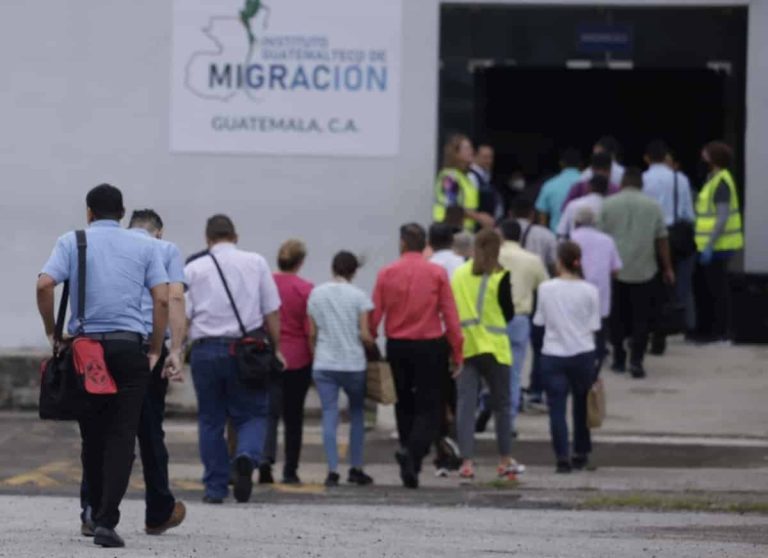14 de octubre 2024

Children of Exile: The Births “Sowing Hope” in the Camp of Nicaraguan Farmers

PUBLICIDAD 1M
PUBLICIDAD 4D
PUBLICIDAD 5D
Exiled political prisoners were victims of cruel and degrading treatment, the IACHR condemns the persistence of serious human rights violations

Released Nicaraguan politicians upon arrival in Guatemala. Photo: Presidency of Guatemala
The 135 political prisoners exiled to Guatemala on September 5, 2024, were allegedly victims of “cruel, inhumane, or degrading treatment or punishment” by state officials, who reportedly subjected them to “beatings, electric shocks” and other forms of torture in Nicaragua, according to the Inter-American Commission on Human Rights (IACHR).
In a public statement, the IACHR indicated that in recent weeks, the Special Follow-up Mechanism for Nicaragua (MESENI) received testimonies from individuals released on September 5, who reported human rights violations they suffered while in captivity.
“The testimonies received point to the persistently deplorable detention conditions, characterized by unsanitary cells, a lack of access to potable water, insufficient and poor-quality food, negligent medical care, and a lack access to medications, as well as restrictions on receiving packages and family visits,” the IACHR explained.
It added that the complaints and testimonies received “point to the commission of cruel, inhuman, or degrading treatment by state officials, such as beatings and electric shocks, prolonged isolation, sleep deprivation, constant interrogations, and limited access to sunlight.”
Women Without Hygiene Products
The IACHR also emphasized that testimonies from former female political prisoners, who were detained in the penitentiary known as La Esperanza, refer to the lack of access to basic hygiene products, inadequate sleeping arrangements, and overcrowded conditions in unsanitary cells.
“Some testimonies point to the application of isolation regimes. Additionally, the lack of medical attention and adequate medications was documented, despite many detainees suffering from health issues such as infections. The presence of surveillance cameras in the cells was also reported,” the statement continued.
Following their release and exile to Guatemala, the affected individuals expressed uncertainty and vulnerability due to the physical and emotional scars suffered in prison, as well as fear for the safety of their families in Nicaragua, the IACHR warned.
A Call to the International Community
The IACHR urged the international community to provide humanitarian and legal support to the released individuals so they can rebuild their lives in dignity.
It also called on receiving states to offer them international protection and stable immigration status to facilitate their integration.
Furthermore, the organization once again made an urgent appeal to the Government of Nicaragua to end the persecution and harassment of human rights defenders, activists, and political opponents, and to immediately release all individuals arbitrarily deprived of their freedom.
According to IACHR data, at least 36 individuals remain arbitrarily detained, including eight Indigenous leaders who are “being held in deplorable conditions of unsanitary confinement, without access to potable water, inadequate food, lack of medical attention, and reports of mistreatment.”
In this regard, the organization urged the state to release all individuals who are arbitrarily deprived of their liberty.
This article was published in Spanish in Confidencial and translated by Havana Times. To get the most relevant news from our English coverage delivered straight to your inbox, subscribe to The Dispatch.
PUBLICIDAD 3M
Confidencial es un diario digital nicaragüense, de formato multimedia, fundado por Carlos F. Chamorro en junio de 1996. Inició como un semanario impreso y hoy es un medio de referencia regional con información, análisis, entrevistas, perfiles, reportajes e investigaciones sobre Nicaragua, informando desde el exilio por la persecución política de la dictadura de Daniel Ortega y Rosario Murillo.
PUBLICIDAD 3D